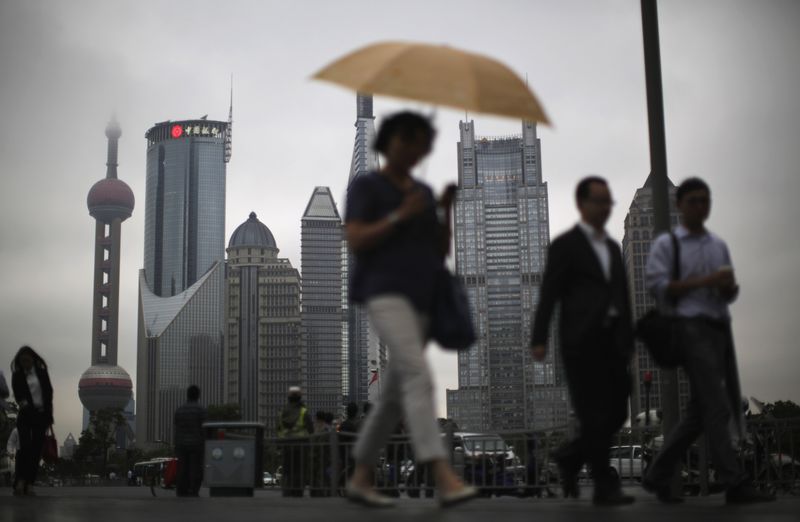Politicisation of trade is immoral and unsustainable, China says
2024.01.03 04:18

© Reuters. FILE PHOTO: People walk along an avenue at Pudong financial district in Shanghai May 30, 2013.REUTERS/Carlos Barria/File Photo
BEIJING (Reuters) – China on Wednesday said a situation in which national security restrictions severely impede global growth due to “the politicisation of economic and trade issues” would be “immoral and unsustainable”. after a International Monetary Fund warning.
IMF Deputy Managing Director Gita Gopinath in December said that if the world economy and trade fragmented into two blocs – implying predominantly the U.S. and Europe in the West and China and Russia in the East – global gross domestic product could be cut by 2.5% to 7%.
“A trade war, a science and technology war, exercises in decoupling or de-risking are, in essence, the politicisation of economic and trade issues,” said Wang Wenbin, a Chinese foreign ministry spokesperson.
“This is immoral and unsustainable and ultimately affects the overall interests of the international community.”
The world’s two biggest economies used to be each other’s largest trading partners. While both governments publicly oppose decoupling, China is now trading more with Southeast Asia, and the U.S. with neighbouring Canada and Mexico.
China has imposed exports curbs on a number of critical minerals, such as graphite – of which it provides 67% of global supply – citing national security concerns.
The United States opposes export controls announced by China on gallium and germanium, metals used to produce semiconductors and other electronics.
Meanwhile, the U.S. has placed restrictions on the export of semiconductors and the equipment to make them to China, also citing security concerns.
“China is willing to work with all parties to advocate inclusive economic globalisation, resolutely oppose anti-globalisation and oppose all forms of unilateralism and protectionism,” Wang said.








